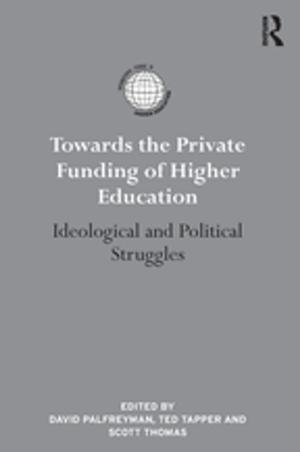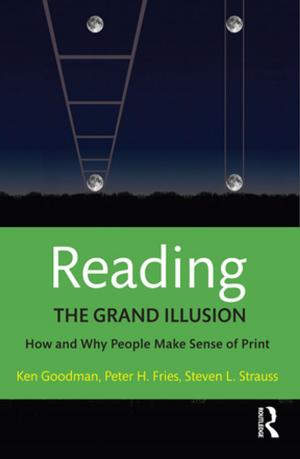The Cultural Imaginary of Terrorism in Public Discourse, Literature, and Film
Narrating Terror
Fiction & Literature, Literary Theory & Criticism, American, Nonfiction, Social & Cultural Studies, Political Science| Author: | Michael C. Frank | ISBN: | 9781134837366 |
| Publisher: | Taylor and Francis | Publication: | June 14, 2017 |
| Imprint: | Routledge | Language: | English |
| Author: | Michael C. Frank |
| ISBN: | 9781134837366 |
| Publisher: | Taylor and Francis |
| Publication: | June 14, 2017 |
| Imprint: | Routledge |
| Language: | English |
This study investigates the overlaps between political discourse and literary and cinematic fiction, arguing that both are informed by, and contribute to, the cultural imaginary of terrorism. Whenever mass-mediated acts of terrorism occur, they tend to trigger a proliferation of threat scenarios not only in the realm of literature and film but also in the statements of policymakers, security experts, and journalists. In the process, the discursive boundary between the factual and the speculative can become difficult to discern. To elucidate this phenomenon, this book proposes that terror is a halfway house between the real and the imaginary. For what characterizes terrorism is less the single act of violence than it is the fact that this act is perceived to be the beginning, or part, of a potential series, and that further acts are expected to occur. As turn-of-the-century writers such as Stevenson and Conrad were the first to point out, this gives terror a fantastical dimension, a fact reinforced by the clandestine nature of both terrorist and counter-terrorist operations. Supported by contextual readings of selected texts and films from The Dynamiter and The Secret Agent through late-Victorian science fiction to post-9/11 novels and cinema, this study explores the complex interplay between actual incidents of political violence, the surrounding discourse, and fictional engagement with the issue to show how terrorism becomes an object of fantasy. Drawing on research from a variety of disciplines, The Cultural Imaginary of Terrorism will be a valuable resource for those with interests in the areas of Literature and Film, Terrorism Studies, Peace and Conflict Studies, Trauma Studies, and Cultural Studies.
This study investigates the overlaps between political discourse and literary and cinematic fiction, arguing that both are informed by, and contribute to, the cultural imaginary of terrorism. Whenever mass-mediated acts of terrorism occur, they tend to trigger a proliferation of threat scenarios not only in the realm of literature and film but also in the statements of policymakers, security experts, and journalists. In the process, the discursive boundary between the factual and the speculative can become difficult to discern. To elucidate this phenomenon, this book proposes that terror is a halfway house between the real and the imaginary. For what characterizes terrorism is less the single act of violence than it is the fact that this act is perceived to be the beginning, or part, of a potential series, and that further acts are expected to occur. As turn-of-the-century writers such as Stevenson and Conrad were the first to point out, this gives terror a fantastical dimension, a fact reinforced by the clandestine nature of both terrorist and counter-terrorist operations. Supported by contextual readings of selected texts and films from The Dynamiter and The Secret Agent through late-Victorian science fiction to post-9/11 novels and cinema, this study explores the complex interplay between actual incidents of political violence, the surrounding discourse, and fictional engagement with the issue to show how terrorism becomes an object of fantasy. Drawing on research from a variety of disciplines, The Cultural Imaginary of Terrorism will be a valuable resource for those with interests in the areas of Literature and Film, Terrorism Studies, Peace and Conflict Studies, Trauma Studies, and Cultural Studies.















